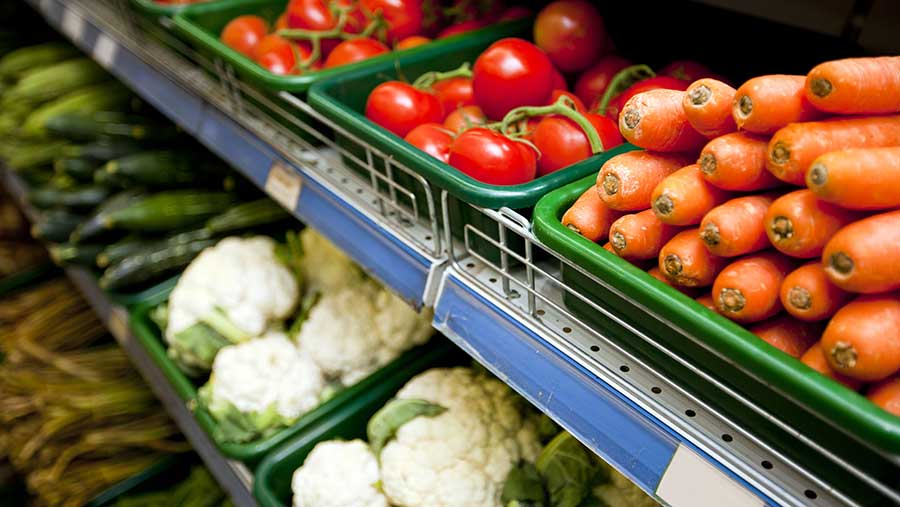Plant-based diets could be key to reducing carbon footprint
 © Mood Board/Rex/Shutterstock
© Mood Board/Rex/Shutterstock The UK is the 25th highest emitter of carbon dioxide (CO2) in the world and tackling meat over-consumption could be key to meeting climate targets, according to a new report.
The study, released by online retailer and nutrition specialist Nu3 on World Food Day 2018 (16 October), reveals annual CO2 emissions per person for 130 nations.
Argentina is listed as the worst offender, emitting 305.81kg of CO2 per year, whereas the UK emits on average 172.46kg of CO2 per person annually for animal products and 8.60kg of CO2 per person annually for non-animal products.
See also: Ultimate Guide: How to plant trees on your farm
World Food Day, which began in 1945, is meant to raise awareness of the issues behind poverty and hunger and strive towards a future where everyone has enough nutritious food.
The study suggests countries could significantly reduce their carbon footprint by switching to a plant-based diet.
However, a report from the Changing Markets Foundation and Mighty Earth has stated there is a complete lack of public policies in place to ensure the food sector is part of the solution to climate change.
In fact, Growing the Good: The Case for Low Carbon Transition in the Food Sector says government policies universally support unsustainable agricultural production systems dominated by intensive meat and dairy farmers and producers.
According to this report, meat consumption is more than double the recommended levels for healthy diets in many EU countries and in the US.
Nusa Urbancic, campaigns director at the Changing Markets Foundation, said: “The lack of public policies in this sector is alarming.
“If meat and dairy consumption increases as forecast, there will be almost no room within the total allowable global emissions budget for any sectors other than agriculture by 2050.”
Around 16.5% of the world’s greenhouse gas emissions come from animal agriculture – equivalent to the emissions from combustion of all transport fuels.
The sector also creates one-third of potent methane and nitrous oxide emissions.
The Changing Markets Foundation’s recommendations to governments
- Updating climate targets to include the mitigation potential of animal agriculture
- Updating fiscal policies to reduce meat demand and consumption, such as “meat taxes”
- Establishing implementation strategies for dietary guidelines for the shift to healthier diets
- Shifting subsidies away from intensive animal farms
- Incentivising the production of diverse and underused protein crops
- Funding the research and development of plant-based and other meat alternatives, such as clean meat
